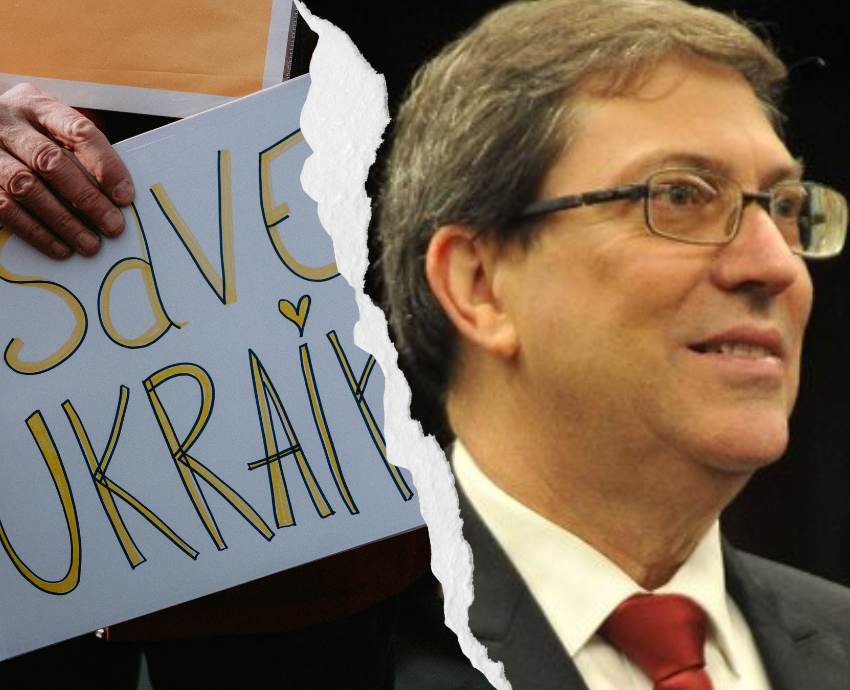
The Cuban government has denounced the participation of its citizens in Russia’s war on Ukraine, as it revealed the discovery of a human trafficking ring seeking to entice or trick Cubans into joining the war effort.
In a statement issued on September 4, Cuba’s Ministry of Foreign Affairs (MINREX) said: “The Ministry of the Interior has detected and is working to neutralise and dismantle a human trafficking network that operates from Russia in order to incorporate Cuban citizens living there and even some living in Cuba, into the military forces that participate in military operations in Ukraine”.
Three days later, it was reported that 17 people had been arrested as part of an ongoing investigation. Among the charges laid were human trafficking, fighting as a mercenary and hostile action against a foreign state, some of which carry a punishment of life sentence or even the death penalty.
Videos of Cubans either appearing to have volunteered or alleging they were tricked into being sent to fight in Ukraine began to appear in anti-Cuba media outlets and Cuban social media in the weeks prior to the government’s statement. While it appears the offer of money and a Russian passport were used as lures, many of the videos involved pleas from young Cubans requesting help to return home.
Much of the media coverage has alleged Cuba has been colluding with Russia’s military operation, an accusation also levelled in Kyiv in late August by Orlando Gutiérrez Boronat, a spokesperson for the right-wing reactionary Assembly of the Cuban Resistance who was visiting Ukraine.
In response, 30 Ukrainian parliamentarians issued a statement on September 8, expressing deep concern “about the presence and participation of forces and mercenaries loyal to the dictatorship in the Republic of Cuba in the genocidal invasion of the territory of Ukraine".
MINREX, however, has rejected all such claims, stating “Cuba’s enemies are promoting distorted information that seeks to tarnish the country’s image and present it as an accomplice to these actions that we firmly reject.
“Cuba has a firm and clear historical position against mercenarism, and it plays an active role in the United Nations in rejection of the aforementioned practice, being the author of several of the initiatives approved in that forum."
MINREX also reiterated that “Cuba is not part of the war in Ukraine”. While Cuba has not voted in favour of United Nations (UN) resolutions calling on Russia to withdraw its troops from Ukraine, it has chosen to abstain rather than vote against them, as Nicaragua, Belarus, North Korea, Syria and Russia’s other closest allies have done.
Russia has increasingly become a key economic ally for Cuba, especially in light of the Caribbean island having had to endure a decades-long US-led economic blockade.
Russian media outlets have sought to downplay the incident, with several citing Russian parliamentarian Alexey Chepa’s comments that the claims were “fake” and that the operation was most likely simply the work of individuals “organising themselves through chat rooms”.
Russian media also reported comments allegedly made by Cuba’s ambassador to Russia, Julio Antonio Garmendia Pena, on September 14 that Cuba would not stop those “who just want to sign a contract and legally take part with the Russian army in this operation”.
Cuba’s foreign affairs minister Bruno Rodríguez Parrilla moved swiftly to clear up any possible confusion. The following day he posted on X: “The unequivocal and unswerving position of the Cuban government, in accordance with its national legislation, is contrary to the participation of Cuban citizens in conflicts of any sort and against mercenarism and trafficking in persons.”
Commenting on Boronat’s visit to Ukraine and the situation more generally in a September 4 opinion piece in Granma, the official paper of the ruling Cuban Communist Party, Raúl Antonio Capote, wrote: “The fake news that troops from our country are participating in combat actions on the Russian side, well seasoned with melodramatic staging, has grabbed headlines in the main counterrevolutionary media outlets.”
According to Capote, the paper’s chief international editor, “the central objectives of the new US campaign are aimed at breaking diplomatic relations between Cuba and Ukraine, strengthening ties with the extreme right on the Old Continent, and dynamiting the political and cooperation agreement between the island and the European Union…
“Furthermore, and no less important, it is an attempt to launch a diplomatic offensive against Cuba and Russia at the UN, as part of the actions being prepared against the Cuban President’s attendance in New York.
“They want to prevent our nation’s voice from being heard, to prevent South-South cooperation, and hinder the path to a multipolar world.” That is why, he added “they are extremely concerned about the G77 + China Summit”, which was successfully held in Havana on September 15-16.